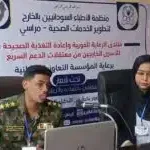python
# Assuming the use of a specific NLP library for sentiment analysis and text summarization.
# This is a conceptual example and may require adaptation to specific libraries and data structures.
# Libraries such as NLTK, spaCy, or TextBlob can be used for sentiment analysis and summarization.
def analyze_and_summarize(article):
# Perform sentiment analysis on the article
sentiment = analyze_sentiment(article)
# Summarize the article
summary = summarize_article(article)
# Add a deep journalistic flavor to the summary
flavored_summary = add_journalistic_flavor(summary)
return flavored_summary, sentiment
def analyze_sentiment(article):
# Use a sentiment analysis library to determine the sentiment of the article
# For example, using TextBlob:
from textblob import TextBlob
analysis = TextBlob(article)
sentiment = analysis.sentiment
return sentiment
def summarize_article(article):
# Use a text summarization library to create a summary of the article
# For example, using NLTK’s summarization capabilities:
from nltk.tokenize import sent_tokenize
from nltk.corpus import stopwords
from nltk.probability import FreqDist
from nltk.tokenize import word_tokenize
# Tokenize the sentences in the article
sentences = sent_tokenize(article)
# Remove stopwords and tokenize words
stop_words = set(stopwords.words(‘arabic’))
words = word_tokenize(article)
words = [word for word in words if word.lower() not in stop_words]
# Calculate the frequency distribution of words
freq_dist = FreqDist(words)
# Assign a score to each sentence based on the frequency of words
sentence_scores = {}
for sentence in sentences:
for word in word_tokenize(sentence.lower()):
if word in freq_dist.keys():
if sentence not in sentence_scores.keys():
sentence_scores[sentence] = freq_dist[word]
else:
sentence_scores[sentence] += freq_dist[word]
# Select the top sentences to form the summary
summary_sentences = sorted(sentence_scores, key=sentence_scores.get, reverse=True)[:3]
summary = ‘ ‘.join(summary_sentences)
return summary
def add_journalistic_flavor(summary):
# Add a journalistic flavor to the summary by enhancing the language
# This is a placeholder for more complex natural language processing techniques
flavored_summary = summary.replace(“اØģØŠŲØĻŲ”, “اØģØŠŲØĻŲ ØĻØŲاŲØĐ”)
return flavored_summary
# Example usage:
article = “””
اŲØŪØąØ·ŲŲ
31-5-2025 (ØģŲŲا) ØĨØģØŠŲØĻŲ ŲاŲŲ اŲØŪØąØ·ŲŲ
اŲØĢØģ؊اذ ØĢØŲ
ØŊ ØđØŦŲ
اŲ ØŲ
ØēØĐ Ø§ŲŲŲŲ
اŲŲاŲŲØĐ Ø§ŲØĩØŲØĐ Ø§ŲØŠŲ ØģŲØąØŠŲا ØīØąŲØĐ ØēاØŊŲا اŲØđاŲŲ
ŲØĐ ŲŲاØģØŠØŦŲ
Ø§Øą ØĨØØŊŲ ØīØąŲا؊ ØĩŲØŊŲŲ اŲØŠØĢŲ
ŲŲ اŲا؎؊Ų
اØđŲ ØĻاŲŲŲا؊ اŲŲ
ØģŲØØĐ ŲØ°ŲŲ ŲŲاØģŲاŲ
ŲŲ ØŊØąØĄ ØĒØŦØ§Øą Ų
ØąØķ اŲŲŲŲŲØąØ§ ØĻŲŲاŲØĐ Ø§ŲØŪØąØ·ŲŲ
.
ŲØ°ŲŲ ØĻØØķŲØą Ų ØŊŲØą ØđاŲ ŲØēØ§ØąØĐ Ø§ŲØĩØØĐ ØŊŲØŠŲØą ŲØŠØ Ø§ŲØąØŲ Ų Ų ØŲ ØŊ اŲØĢŲ ŲŲ ŲاŲŲ ØŊŲØą اŲØđاŲ ŲŲØēØ§ØąØĐ Ø§ŲØŦŲاŲØĐ ŲاŲØĨØđŲاŲ ŲاŲØģŲاØØĐ Ø§ŲØĢØģ؊اذ اŲØ·ŲØĻ ØģØđØŊ اŲØŊŲŲ ŲŲØīŲ اŲŲاŲŲ ØđŲ Ų ØŽŲŲØŊا؊ ŲØĻŲØąØĐ ØŠŲ ØŠ ŲŲØģŲØ·ØąØĐ ØđŲŲ اŲŲ ØąØķ ŲاŲ ØŠ ØĻŲا ŲØēØ§ØąØĐ Ø§ŲØĩØØĐ ØĻاŲŲŲاŲØĐ ØĻØŊØđŲ Ų Ų ŲØēØ§ØąØĐ Ø§ŲØĩØØĐ Ø§Ųا؊ØاØŊŲØĐ Ų Ų ا ØĢØģŲŲ ŲŲ ØŪŲØķ اŲØĨØĩاØĻا؊ .
ŲØŲا اŲŲاŲŲ Ų ØŊŲØą ØīØąŲØĐ ØēاØŊŲا ØŊŲØŠŲØą Ø·Ų ØØģŲŲ ŲØŊØđŲ Ų اŲØ°Ų ØŽØ§ØĄ ŲŲ ŲŲØŠ ØŠØĻØ°Ų ŲŲŲ اŲŲŲاŲØĐ ŲØĩØ§ØąŲ ØŽŲØŊŲا ŲŲ ØاØĩØąØĐ Ø§ŲŲØĻØ§ØĄ ŲŲاŲ اŲŲاŲŲ ØĢŲ Ų ØĻاØŊØąØĐ ØēاØŊŲا ØŠØĢØŠŲ اØģØŠŲŲ اŲا ŲŲ ØĻاØŊØąØ§ØŠŲا اŲØģاØĻŲØĐ ŲŲŲ ØģاŲŲ ØĐ ŲŲ اŲاØđŲ Ø§Øą ŲØŠŲŲŲØą اŲŲ ŲاØŊ اŲؚذاØĶŲØĐ ŲŲ ØĻØŊاŲØĐ Ø§ŲØØąØĻ .
ŲŲاŲ ŲØ·Ų Øđ ØĻØĢŲ ؊؊ŲاØĩŲ ØĻŲŲØĐ Ø§ŲاØģŲاŲ ا؊ ØØŠŲ ŲŲŲØīØđ اŲŲ ØąØķ ŲØĻØīØą ØĻاŲØŠØđاŲŲ ŲŲØاŲا؊ ØĻŲ ØąØ§ŲØē اŲØđØēŲ ŲŲŲØĐ Ø§ŲØŊØŪŲŲ ØĻŲØķŲ اŲŲ ØŽŲŲØŊا؊ اŲØŠŲ ØĻØ°ŲØŠ ŲŲ اŲØđŲا؎ ŲاŲŲŲاŲØĐ ŲŲŲŲØąØĐ Ø§ŲŲ ŲاŲ ŲŲ ØąØ§ŲØĻØĐ Ø§ŲØĢØģŲاŲ ŲاŲØĢØ·ØđŲ ØĐ ŲŲ ŲاŲØØĐ Ø§ŲŲŲاŲŲ.
Ų ØŊŲØą ØđاŲ ŲØēØ§ØąØĐ Ø§ŲØĩØØĐ ØŲا ØīØąŲØĐ ØēاØŊŲا ŲŲ ØŽŲŲØŊŲا اŲØŊاØđŲ ŲŲŲطاØđ اŲØĩØŲ ŲŲ Ų ØŦŲ ŲØ°Ų اŲØļØąŲŲ Ų ØĻØīØąØ§ ØĻاŲØØģØ§Øą اŲاØĩاØĻا؊ ŲØēŲاØŊØĐ ØاŲا؊ اŲØŠØđاŲŲ Ų Øđ اŲØŠŲØģØđ ŲŲ اŲØŪØŊŲ ا؊ ŲاŲØąØđاŲØĐ Ø§ŲØĩØŲØĐ ŲŲŲ ØąØķŲ ØĻاŲŲ ØąØ§ŲØē ØĻØđØŊ ØĢŲ ØŠŲ ØŠŲŲŲØą ŲŲ اŲŲ ØđŲŲا؊ ŲاŲŲŲاØŊØą اŲØ·ØĻŲŲ ŲاŲØŠŲØđŲŲ Ų ØīŲØąØ§ ØĨŲŲ ØĢŲ Ųذا اŲØŊØđŲ ŲØđØēØē Ų Ų اŲŲØķØđ ŲŲØĢŲØķŲ ŲŲ ØēŲØŊ Ų Ų اŲØŠØđاŲŲ.
Ų Ų ؎اŲØĻŲ ØĢØđŲŲ Ų Ų ØŦŲ Ų ØŊŲØą ØđاŲ ØīØąŲØĐ ØēاØŊŲا ØĻŲŲاŲØĐ Ø§ŲØŪØąØ·ŲŲ اŲŲŲØ§ØĄ ØąŲŲ ØđاØŊŲ ØØģŲ ØŲ ŲØŊØĐ ØĢŲ ØĨØŊØ§ØąØĐ Ø§ŲØīØąŲØĐ ŲŲŲØŠ ŲØŽŲØĐ ŲŲØ·ŲØ§ØąØĶ Ų ØŠŲا؎ØŊØĐ Ų ا ØĻŲŲ اŲŲاŲØąØĐ ŲØĻŲØąØŠØģŲØŊاŲ ŲØđØ·ØĻØąØĐ ŲØĨØŊØ§ØąØĐ ØŊØđŲ ØēاØŊŲا ŲØŊØđŲ ØŽŲŲØŊ ŲØēØ§ØąØĐ Ø§ŲØĩØØĐ ØĻاŲŲŲاŲØĐ ØĻØŠØģŲŲØą ØŽØģØą Ų Ų اŲŲ ØģاØđØŊا؊ اŲØ·ØĻŲØĐ ØØŠŲ ŲŲŲØīØđ اŲŲ ØąØķ ØĻØŠŲØĻŲØĐ ŲŲ اŲاØØŠŲا؎ا؊ Ų Ų اŲØĨŲ ØŊاØŊ اŲØŊŲاØĶŲ ŲاŲŲ ØđŲŲا؊ اŲØĩØŲØĐ. ŲŲ ا ØŽØŊØŊ اŲØŠØĢŲŲØŊ اŲŲŲŲŲ Ų Øđ ØŲŲŲ ØĐ Ø§ŲŲŲاŲØĐ ŲŲ ØĩŲاŲØĐ Ø§ŲŲ ØģØŠØīŲŲا؊ ŲاŲŲا؊ اŲŲØļاŲŲ Ų Øđ اŲŲ ØŲŲا؊ ŲاŲØąØī ØĻاŲطاØĶØąØ§ØŠ.
#ØģŲŲا #اŲØģŲØŊاŲ
“””
flavored_summary, sentiment = analyze_and_summarize(article)
print(“Flavored Summary:”, flavored_summary)
print(“Sentiment:”, sentiment)




